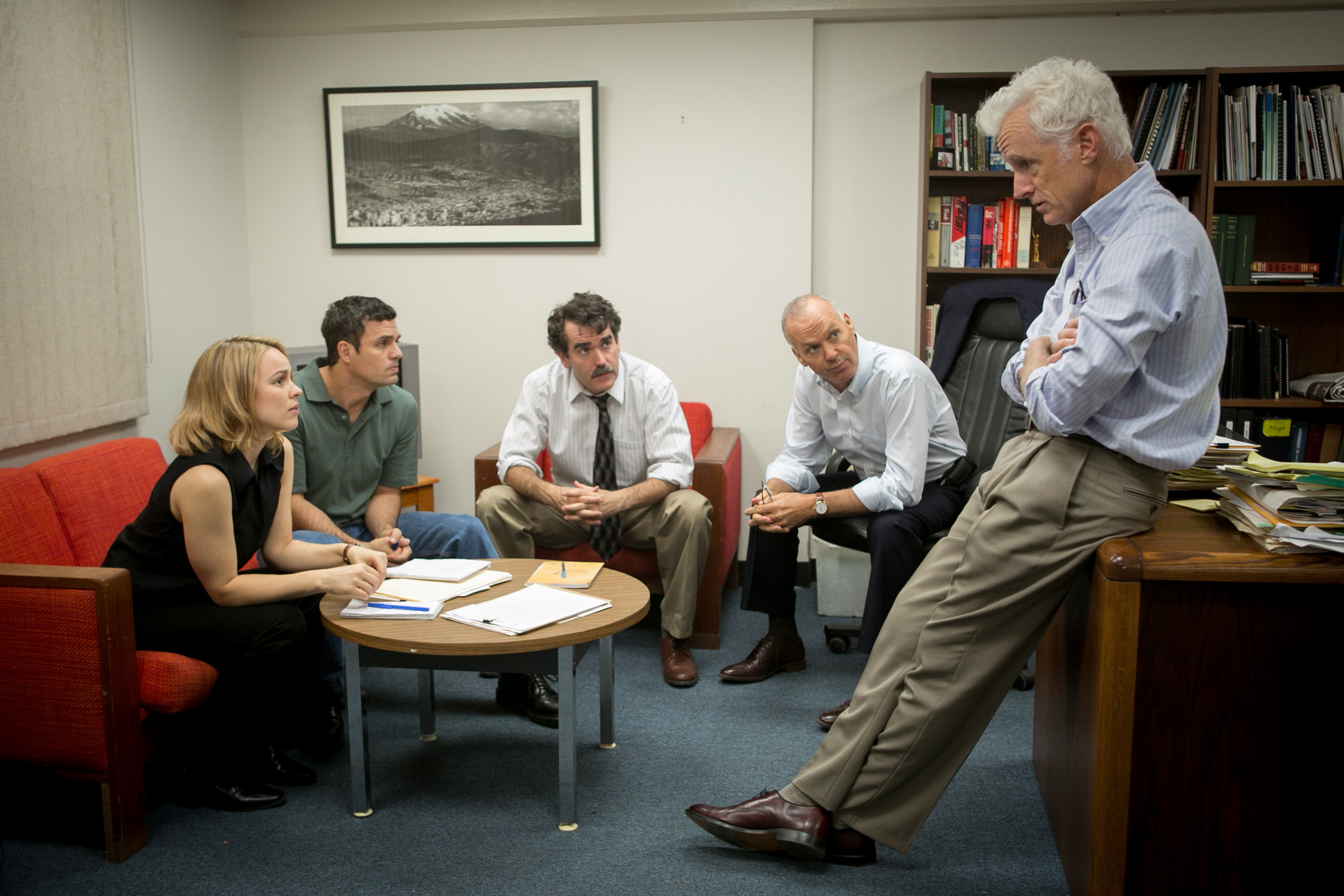Spotlight is an understated film. It’s not flashy, it doesn’t have a constantly peaking score begging you to feel, and the actors aren’t trying to steal every scene they’re in. Instead, director Tom McCarthy created a film that shares the same journalistic spirit as its lead characters. For most of its runtime, it feels as impartial as it could possibly be, intent on getting to the bottom of things without manipulating the viewer emotionally. It lets the facts speak for themselves, and keeps us engaged with the thrill of the chase.
Visually, it’s all fairly old-school. It employs lots of wide shots and the takes are typically longer than your average 2015 release. But again, this is very appropriate for the film. Set in 2001, this particular story about the discovery of the Catholic church’s institutional child abuse centers around a method of journalism based on researching, building a story, and not publishing until it’s ready. It’s the kind of vital reporting that used to be the cornerstone of the profession and is sadly disappearing today, with the desire to be the first to break a story on the internet outweighing the need to research and fact-check. The film rarely outright decries the coming pitfall of journalistic integrity, but it does subtly hint that we are watching the end of the era.
The cast is largely responsible for the film’s success, with each character coming across as a consummate professional. There’s an intensity to Rachel McAdams’s character that demonstrates the dedication required to break a story like this, and a raw nerve to Mark Ruffalo’s performance that represents the passion needed to pursue such a difficult story for an extended period of time. Meanwhile, Michael Keaton humanizes the fear of upsetting ones community that kept the Catholic Priest scandal secret for so long, and John Slattery embodies the skepticism necessary for the team of journalists to remain impartial.
But perhaps my favorite performance in the movie belongs to Liev Schreiber, who plays his role completely against expectations. As the Jewish, out-of-town new editor of the Boston Globe, Schreiber’s character Marty Baron is initially positioned as a danger to the Globe’s Spotlight team. But Baron is not only extraordinarily competent, he’s full of integrity, pushing the Catholic Priest abuse story when even the Spotlight team is afraid or skeptical. He does this not through anger or intimidation, but by quietly nudging people in the right direction. His calm demeanor and lack of verbosity seems to stem from self-confidence. Unlike many “leader” types, who put on an air of authority or act aggressive to prevent others from questioning their decisions, Baron seems more indicative of a real-world great leader: naturally confident, only pushing his will when it is absolutely necessary.
The strong-but-understated performances and the assured-but-minimalist style of the film allow the subject of the scandal itself to take center stage. Few people are still unaware of the fact that Catholic Priests, forced into celibacy, have molested children, but the way that the story continues to expand and the ultimate magnitude of the problem (as indicated by the post-film text, highlighting internationally how many instances there have been) is utterly staggering. Spotlight is the rare film that could actually make a difference if enough people see it. It presents a terrible, ongoing situation that is oft-ignored, and it does so without openly manipulating its audience. This may be one of the most significant films of 2015.
